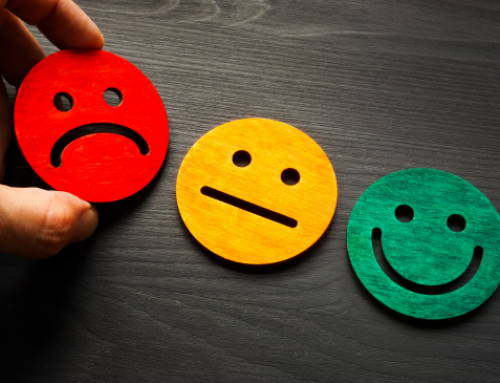In museums, libraries, galleries, and concert halls, one can watch a similar drama unfold. An incipient style—of a period, of an artist—begins uncertainly, but it promises something more, an as-yet-unachieved maturity. Eventually, as the career of a style progresses, something permanent and distinctive is added to the sum-total of cultural achievements. One need only think of the qualities conjured by eponymous adjectives—like Dickensian, Romantic, or Rubenesque—to appreciate the clarifying force of a fully realized artistic vision.
But the very distinctiveness that enables such easy recognitions allows for exaggeration, too. Styles can be parodied and characters can be caricatured. Sometimes, this will happen unwittingly as an artist’s powers wane or as periods come to an end. Instead of the confident (if curious) experiments of “late style” that one sees in a Beethoven or a Shakespeare, artists and epochs can enter an exhausted phase which, in some cases, amounts to self-parody. Interestingly, the name we give this phenomenon—from gothic architecture to fin-de-siècle literature—has a moral quality: we call these phases “decadent.”
Why should the same word that describes an aging artist also characterize the dissipations one finds at the end of empires? The connection lies in the barren, self-indulgent, non-reproductive impulse that both so clearly display. Instead of engaging in the work of either creation or restoration, decadent styles and epochs foreshorten their horizons, thinking of the present more than the future. In these moments, the animating spark of invention and innovation becomes only a fading ember, and the achievements of the past seem to offer not an inspiring call but an implicit rebuke.
Thus, do styles distort themselves and states crumble; it takes no great insight to see, in our own moment, the unmistakable signs of such late-stage decadence. Indeed, New York Times columnist, Ross Douthat, has recently argued that ours is, to quote the title of his book, “a decadent society,” and the concept certainly explains phenomena as disparate as Hollywood’s endless reboots and our increasingly visible (and fatal) death-spiral demographics.
But the unmistakable hallmark of our own decadent culture is the spectacular ascendence of “Pride” – with a capital P. Homosexuality has always been associated with moments of decadence—from the Romans to the Renaissance—and the widespread cultural acceptance of homosexual relationships in the West is a clear sign of the progress of our cultural collapse. Indeed, as shocking as the still-recent legal creation of same-sex “marriage” was for Western societies, the cultural predicate had already been well-established by the profusion of barren unions; before marriage could be redefined it needed to be hollowed out from within.
This is surely why “Pride” has become one of the only acceptable forms of patriotism in the modern world. June will bring out the current permutation of the inescapable rainbow flag, and its ubiquity gives a glimpse of how prominent the Union Jack or Old Glory would be in a healthy patriotic culture. But the only flag that can be celebrated with such prominence isn’t that of our own nation, but a symbol of the anti-family values with which our national identity is being ever more totally conflated.
Indeed, the pride flag is quickly becoming the replacement for every other national banner and pennant: it is a marker on doorposts, a gesture of fealty to an emerging, oppressive power. Nor should it escape our notice that, as all Western societies slowly homogenize and become all-but indistinguishable at the level of values, the rainbow pride flag comes to serve as a supra-national signal of allegiance to the new global order. A country’s attitude towards “gay rights” is frequently taken into consideration in the allocation of international aid, and dissenting nations are often punished with proselytizing propaganda campaigns and diplomatic pressure.
A similar form of enforcement can be seen domestically where all schools now, to some degree, pledge their allegiance to pride. So too the worlds of finance and corporate governance are now so committed to the celebration of LGBT that the most vocal and vigorous supporters of pride are now, improbably, the banks. National brands are not far behind in their enforced enthusiasm, and the recent fiasco involving Anheuser-Busch’s Bud Light being promoted by a trans activist showcases the extent to which profit-maximizing entities will disregard that essential imperative when the opportunity to display their commitment to the cause presents itself.
Pride, LGBT, and all of the other euphemistic monikers under which our decaying culture’s decadent values are advanced and its perverse, non-reproductive practices are celebrated—these are becoming the church and the rites of a new state religion, one which will use, in its enforcement, all the surveilling and curtailing technological powers of the 21st century. The zealots of this cult will not tolerate dissent or apostasy, and even though the forms that their imposition will take remain unclear, their ultimate aims are unmistakable. The religion of decadent, permissive sexuality enjoys the full support of our world’s political, cultural, and financial structures of power—in the same way that polytheism enjoyed the official sanction of Ancient Rome.
Historians have debated about the connection between the rise of Christianity and the end of the Roman empire, but it is obvious that no small part of this new religion’s appeal was the sobering, revivifying call which it made to a debauched, decaying population. The promise of something higher than the revelries of Bacchus or the debaucheries of Cupid was irresistible to a culture that had resisted almost nothing, including the occasional incursion of barbarians.
And Christianity will do so again. While it is uncertain how long it will take to rebuild our culture (since we cannot anticipate how far we will fall), sheer demographic realities ensure that we cannot endure this state of affairs for more than a generation; the childlessness advanced by our emerging state religion contains the seeds of its own destruction and dissolution. Just as the Communist regime in China has been hobbled by its own murderous one-child policy, the non-generative state religion of pride makes its downward trajectory inescapable. The end of the decadent regime might be painful, but it is also guaranteed. So too is the emergence, on the other side of the coming crisis, of a better world.




